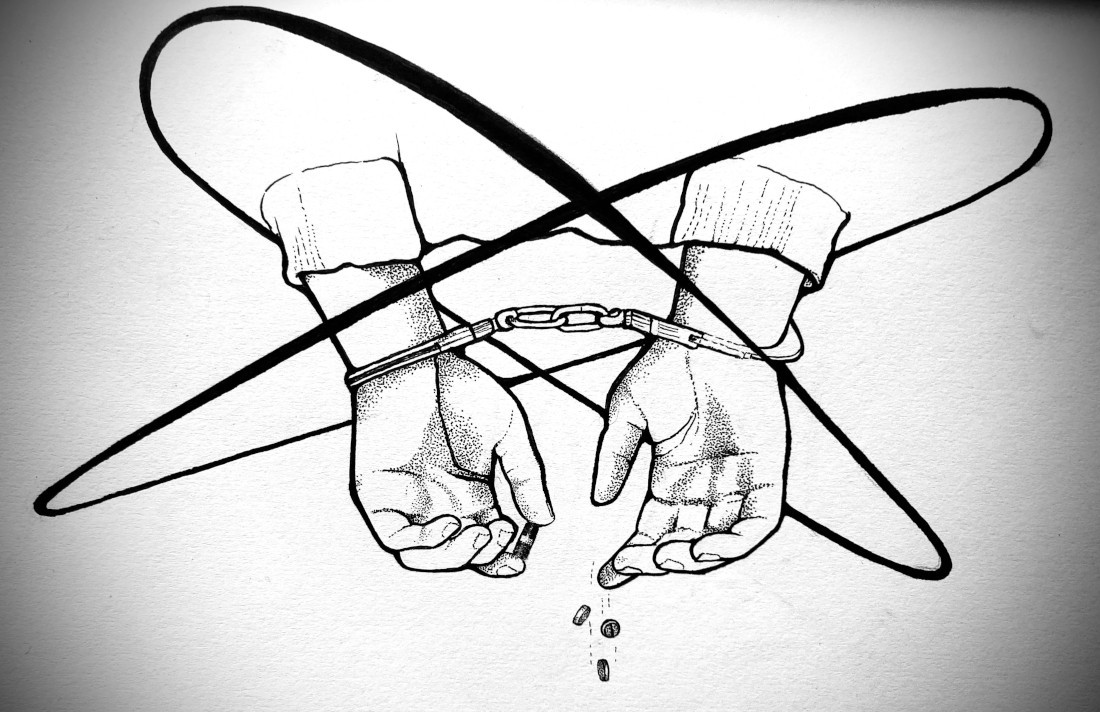Letting the community down
Winnipeg City Council votes against decriminalizing small quantities of drugs
On March 6, the loved ones of people who died of overdoses placed black balloons accompanied by memorials around the city. Black Balloon Day is an international event to honour those who have died of overdoses and to raise awareness about the opioid crisis.
According to the Government of Canada, 26,690 Canadians have died of opioid overdoses between January 2016 and September 2021. In Winnipeg, around 400 people died of opioid overdoses in 2021. The COVID-19 pandemic has only made the crisis worse with “increasingly toxic drug supply, increased feelings of isolation, stress and anxiety and limited availability or accessibility of services for people who use drugs.”
On Feb. 24, Winnipeg city council’s vote split on a proposal to work with the federal government on decriminalizing small amounts of illegal drugs in Winnipeg. The split vote means the proposal did not pass. Many advocates expressed frustration at this result, saying the present criminalization exacerbates the current opioid crisis.
Decriminalization wouldn’t mean that people could buy presently illegal drugs at a store along with other legal substances like alcohol and cannabis. This would only happen with legalization. Instead, decriminalization makes it legal to possess a small quantity of otherwise illegal substances. People producing and selling illegal drugs would still be subject to criminal prosecution, but people using them would not.
Critics point out that decriminalization cannot regulate impurities in the production of illegal drugs, which are often the cause of overdoses. While this is true, criminalization makes it difficult for community organizations to set up harm-reduction practices, such as safe-consumption sites and drug-testing services, which significantly reduce the risk of overdose.
Harm reduction is an approach that rejects the commonly held view of seeing addiction as a moral issue and instead focuses on the systemic causes that lead to addiction and block people from accessing the resources they need to recover. For Manitoba Harm Reduction Network, “Drug policy, criminalization and the war on drugs have been historically harmful, so dismantling those frameworks is a key part of harm reduction.”
In high school, people are often taught to view drug use as a personal moral failing. By using this abstinence framing, these education programs often do not discuss how to use drugs safely or how to seek help if needed. In reality, many people use drugs for a variety of reasons. They might be someone you love, or they might be you.
The current criminalization of drugs creates a fear of legal repercussions for people who want to open up about their drug use or seek treatment. Criminalization imagines drug use as a legal problem to be solved by the police rather than as a health issue to be treated with understanding and care.
By not passing this proposal, Winnipeg city council is letting down community organizations, mutual-aid networks, people who use drugs and the people who love them. The opioid crisis is a serious issue that intersects with poverty, racism, mental illness and has been made worse by the pandemic. Continuing criminalization makes people’s lives harder and does nothing for those who are seeking help with addiction.
It’s time for bolder visions for how we take care of each other and respond to health crises in this city.
Published in Volume 76, Number 22 of The Uniter (March 23, 2022)







